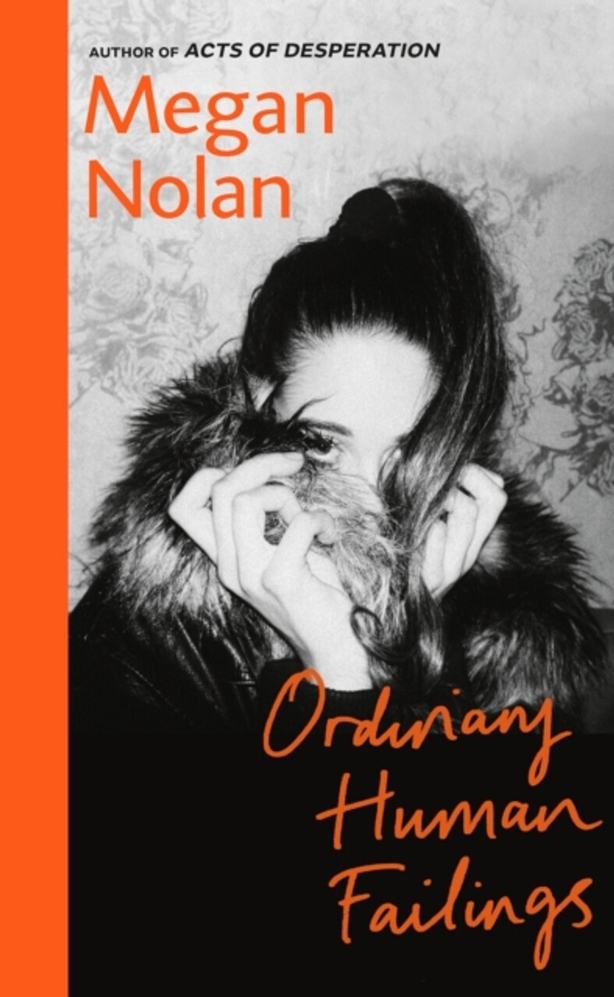When Megan Nolan announced that her second novel would be a noirish tale of a murdered child and a journalist's frantic hunt for answers, fans of her acclaimed debut were thrown.
That novel, Acts of Desperation, was a compelling and uncomfortable read about an obsessive young woman caught up in a toxic relationship, and showed Nolan’s skill at scrutinising hidden shames.
If her first novel explored the lengths we go to in desperation, then her astounding second is about the self-protectiveness that inevitably comes with a life of sordid secrets.
Set largely in the 1990s, it follows the Green family, who move from Waterford to London when teenager Carmel becomes pregnant after a romance with an older man. Years later, when a child from the council estate is found dead, and Carmel’s daughter Lucy is brought in as the key suspect, their lives shift from one of isolation and discontent to agonised terror and suspicion.
We need your consent to load this rte-player contentWe use rte-player to manage extra content that can set cookies on your device and collect data about your activity. Please review their details and accept them to load the content.Manage Preferences
Listen: RTÉ Arena on Ordinary Human Failings
Agitating the plot is the cunning journalist Tom, a parasitic character driven by his own streak of depravity and determination. Disdainful of the "peasants" who read the tabloid newspaper he writes for, yet fully cognisant of the cruelty of his own journalistic methods, he struggles to drown out the self-loathing that haunts his private moments.
The novel opens with Tom’s quest for a story, a way of molding the lives of the Greens into an article debased enough to warrant a flurry of sensational headlines about poverty and neglect. It’s a telling opening, a hint at the novel’s treatment of reality, and the lengths its characters will go to disguise their own circumstances.
The affecting introspection that hummed throughout her debut is here, but turned toward an entire family, as Nolan deftly and sensitively smooths out the threads entangling each one.
It is entirely to Nolan's credit that, despite flirting with the tropes of a crime or procedural novel, there isn’t a trace of caricature in her characters, who feel so real and believable that you could meet them on the street.
When we meet them the Greens are isolated from both their community and each other. Carmel exists in a dreamy daze, lost in memories of her former lover and unable to look at her daughter as anything other than "an abstracted concept".
As a young girl she longed for an "inner life" that would mark her as interesting. After she discovers that she’s pregnant, she joins the legions of scared women trying to become not pregnant. The depiction of her attempted at-home abortion and numerous violent attempts to rid herself of the pregnancy is particularly harrowing.
Carmel’s brother, Ritchie, is an alcoholic plagued by loneliness and a deep longing for connection. He’s one of the novel’s most compelling characters, and the chapter about his one chance to get his life back on track is a devastatingly realised account of hope, self-sabotage and despair. Bullied by his inscrutable father John and doted on by his stepmother before her untimely death, when we meet him he’s a resentful shadow of a man, grappling with his own complicity in disregarding his niece.
So great is Nolan’s ability at capturing the worlds of her characters, that even a teacher’s brief appearance – witnessing Lucy intentionally harming herself, but finding herself unable to report it because of a private pain – is made rich and believable.
Ultimately Nolan’s novel is a compelling reflection on the comforts and habits we turn to to shield us from painful truths. "Reality is a malleable concept", Lucy learns by the novel’s end, as long as you do everything you can to hide the internal turmoil that comes with it.
Nolan illuminates the reality of each individual in the book, from Carmel’s dreamy inner life and recollections of a lost love, to Ritchie’s devastating disappointments and glimmers of deep empathy for most people but himself. Even their father’s patriarchal assumptions about marriage, and eventual humiliation in them, are tangibly fleshed out in just a few pages, while Tom’s participation in the cadaverous mechanisms of the press are explained with an astute awareness of his own unhappiness.
It is entirely to Nolan’s credit that, despite flirting with the tropes of a crime or procedural novel, there isn’t a trace of caricature in her characters, who feel so real and believable that you could meet them on the street. "We’re a family, we’re just an ordinary family, with ordinary unhappiness like yours", Carmel tells Tom. The reality, of course, is that you likely do meet people like them, with unhappiness just like theirs, every day.

Ordinary Human Failings is published by Jonathan Cape


